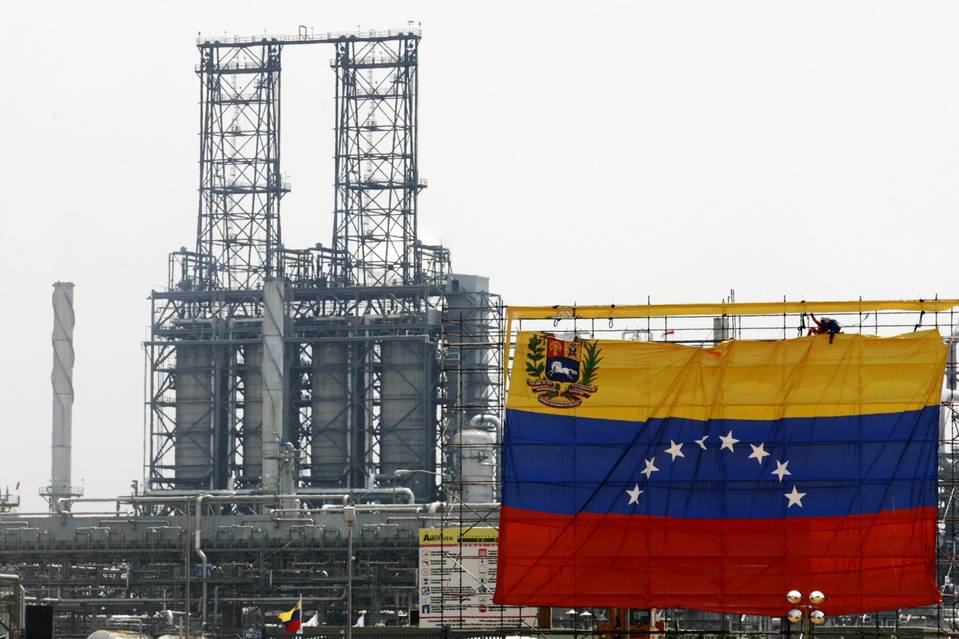By Joel Bhagwandin – OilNOW
Over the past two decades, Venezuela has changed to become a problematic country from an investment perspective. Venezuela’s political and economic history supports the assertion that Venezuela has and continues to be a risky place to make investments, especially for political reasons.
During the mid-1990s, Venezuela’s national oil company, PDVSA, implemented a policy known as the Apertura Petrolera (oil opening), which sought to mobilise the capital, technology, and managerial capabilities of international oil companies in order to maximise the production of crude oil while simultaneously reducing drastically the fiscal burden on hydrocarbons exploration and production activities. Of note, the policy achieved its objectives to a large extent.
Production by Venezuela was a key factor behind the oil price collapse of 1998, and the paltry fiscal income generated by some of the Apertura era projects made them the most unfavorable–for the State– in the history of Venezuela’s petroleum industry. The standard bearers of the Apertura were four large, costly, and complex projects dedicated to the production upgrading (i.e., partial refining) and marketing (as synthetic crude) of extra-heavy oils. Three of these projects were at the centre of arbitration proceedings that ConocoPhillips (COP) and ExxonMobil (XOM) initiated against Venezuela at the International Center for Settlement of Investment Disputes (ICSID) in late 2007.
These arbitrations featured some of the largest claims ever to have been made against a State by international investors: US$30 billion in the case of COP and more than US$15 billion in the case of XOM. COP and XOM alleged that, in changing the fiscal conditions for the upgrading projects, and then re-structuring them along the lines sketched above, the Venezuelan Government rode roughshod over their vested rights, treating contractual undertakings “as the proverbial scrap of paper” that they can disregard at their convenience…breaking all the commitments…made to induce investment. In other words, XOM and COP contended that Venezuela, inter alia, legislative amendments enacted changes to the fiscal terms of the investment agreement that were more favorable to the country which jeopardised the stability of and security of their long-term investments.
According to XOM and COP, their legal proceedings were prompted by a commitment to uphold the principle of sanctity of contract. The oil companies would have bargained with PDVSA to obtain protection for their investments through specific compensation mechanisms, which made explicit reference to a limitation of liability on the part of PDVSA, and provided that foreign investors would be deemed not to have suffered any adverse economic consequences from government measures when the price of crude oil exceeded a certain threshold level.
In 2007, an arbitration panel awarded ExxonMobil US$908 million in compensation for Venezuela’s nationalisation of its assets, less than 10% of what the company sought in the long legal battle against Venezuela. In 2017, a World Bank tribunal eventually ordered Venezuela to pay ExxonMobil US$1.4 billion in damages. In view of the less than 10% in compensation ExxonMobil sought, this meant that ExxonMobil effectively lost the legal battle against the Venezuela nationalization case.
What are the lessons for Guyana?

This situation as described above in the case of ExxonMobil versus Venezuela, is precisely the origin of the stability clause that found its way into the Guyana PSA of 2016. In this regard, the stability clause states that any changes instituted by the Government through legislative amendments that would significantly alter the fiscal terms of the PSA, and that would result in a negative impact on the oil companies’ take, the Government will be obligated to compensate the oil companies for any such losses.
It is for this reason that ExxonMobil is unlikely to agree to any renegotiation at this time. It is worth noting, too, that ExxonMobil may not be strongly favored by the Biden Administration or the democrats, but should the Republicans win the next presidential elections in 2024, historically, ExxonMobil has stronger influence and relations with the Republicans given their more capitalist leanings.
As such, any strong legal or otherwise imposition by Guyana to change the fiscal terms of the 2016 PSA that would adversely affect the oil company’s take would not augur well for Guyana. In this regard, this would not only be a breach of the terms of the contract and jeopardising the sanctity of contract principles – thereby increasing the level of perceived political risk of the country, but could also highly likely trigger geopolitical tensions on the part of Guyana by the U.S. In any event, this would be an undesirable outcome for Guyana and the region at large.
More so, given Guyana’s strategic regional and geopolitical importance, Guyana needs to now more than ever, ensure that it deepen its relations with the U.S. for its stability and regional security–especially against the backdrop of the ongoing border controversy between Venezuela and Guyana. The general thrust of this notion is premised on the objective of achieving overall prosperity for the country and its people, which can only be achieved in a stable political, geopolitical, and economic environment. On the other hand, instability in these respects, as is evidenced in the case of Venezuela and many other examples around the world, usually lead to the opposite–that is, political, social, and economic crises that culminate in economic devastation, thus, engendering widespread poverty.
About the Author
Joel Bhagwandin is a business and financial professional with more than fifteen years’ experience in the financial sector; corporate finance; financial management and risk; consulting, and academia combined. Joel is actively engaged in providing insights and analyses on a range of public policy, economic and macrofinance issues for the past 6+ years. In this regard, he has authored more than 300 articles covering a variety of thematic areas in public policy and macrofinance. Academically, Mr. Bhagwandin is the holder of a MSc. in Business Management (Banking) from Edinburgh Napier University. His specialties and skills include Corporate Finance, Banking, Capital Markets & Securities, Financial Risk Management, Business Intelligence & Data Analysis. Joel is currently pursuing his second MSc. in Finance (Economic Policy) through the University of London.



